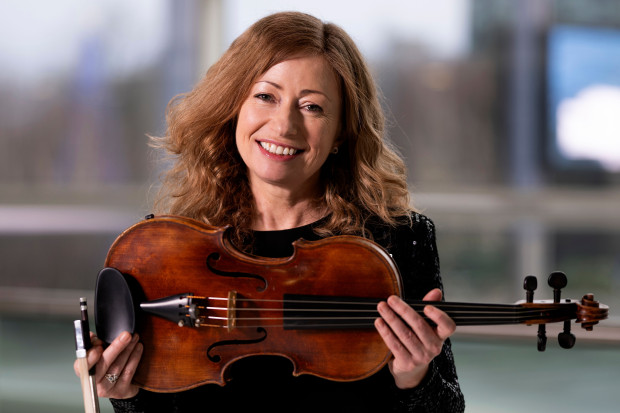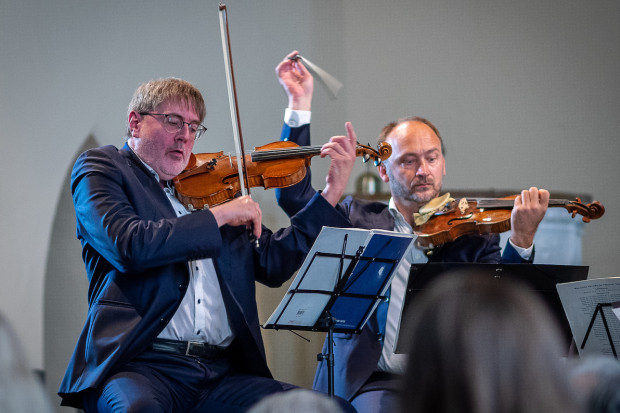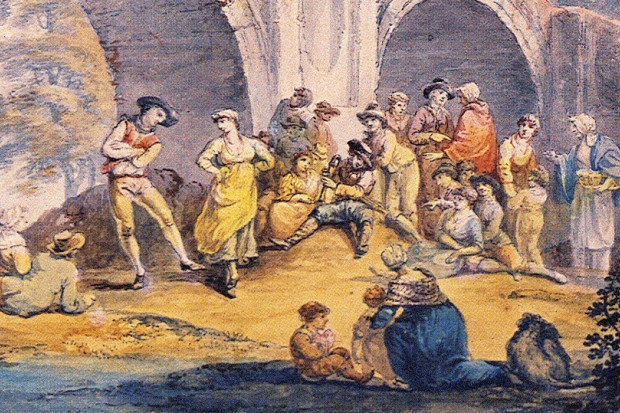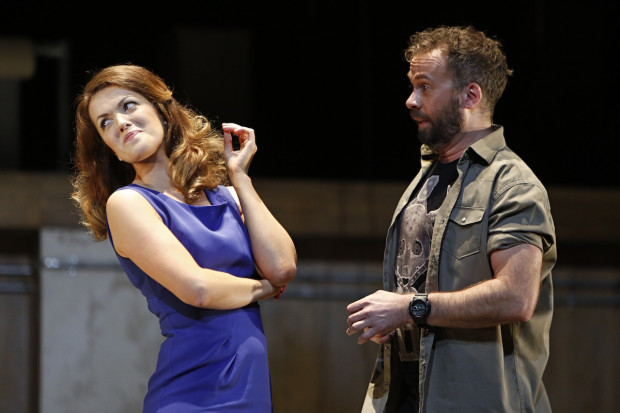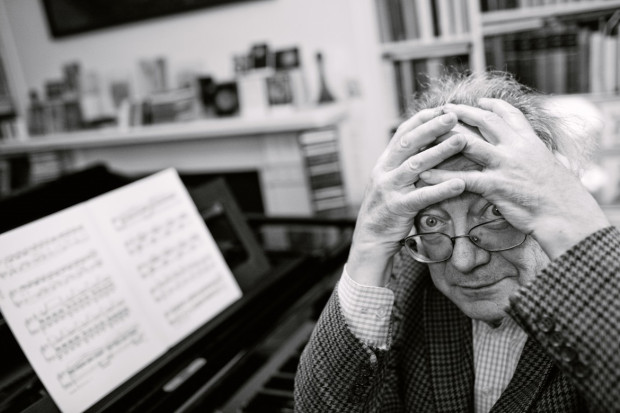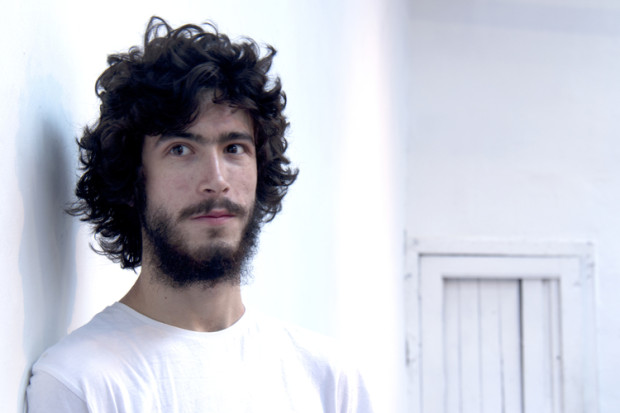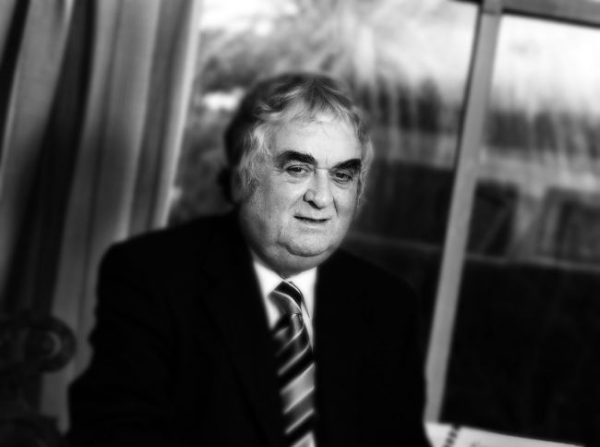
Seoirse Bodley
Sirs William, Jack and Thomas...
The seminar on contemporary choral music has always been one of the highlights of the Cork Choral Festival. Although quite specialised, it is neither abstract nor divorced from the music. Aloys Fleischmann, in whose time I attended, was of course very expert in analysis; he spent much time and trouble taking the compositions apart and putting them back together again. By and large it worked very well and I have many vivid memories of the seminars. I shall always remember Aloys, for instance, saying to the English composer Sir William Walton (1902-83), ‘William, there is someone I want you to meet,’ but he just looked at Aloys and said tiredly, ‘I’m too old: I don’t want to meet any more people.’ I recall also the German composer Boris Blacher (1903-75) being rather incensed when he was questioned about particular procedures he had used. I don’t think he liked having his work analysed with a question mark over any of it. You certainly get insights at the seminar with the composers present.
Clearly, you get a certain amount from analysing works and seeing how they are structured, but the live performance is essential. Nowadays the music one hears on a CD gives a totally false idea of the actual performance. Live performance has to be approached in a special way. Performers have to take chances, even at the risk of someone making a mistake, whereas in recorded performance the opposite tends to be the case. Having a clear understanding of this is one of the strengths of the seminar.
As a composer I never found the seminar in any sense an unpleasant experience – in fact it was handled very well and with a sense of freedom. The standard of the choirs performing the works could vary of course. Sometimes the composer would propose a choir to perform the commissioned work. It is one skill to write for a professional choir that is highly trained and can sing anything or very nearly anything, but it is quite another to be able to write interesting music that can be sung by a really good amateur choir. It is worth pointing out, however, out that there is not the same gulf between the singing of an amateur and professional choir as there is between the playing of an amateur orchestra and a professional orchestra (except in the highest regions of youth orchestra performance). An amateur group singing a motet by Palestrina can perform it just as validly as a professional choir, although, obviously, the difference is that they will take much longer rehearsing it than a professional group would.
I came to the Festival as an adjudicator also. On one particular occasion I was adjudicating with the English conductor and scholar Sir Jack Westrup (1904-75). Sir Jack was a very pleasant man, but very English in his reserved and rather old-fashioned manner. (There was another side to him that was not generally seen: for example, he told me he went to see The Sound of Music six times – rather an endearing confession!) However, he appeared very austere in his dealings with people.
We were both adjudicating school choirs one afternoon, and I remember he said to me just before he went out: ‘Oh, I think these boys and girls just want to know the results and go home.’ So he acted on this idea, read out the results and sent them away. There was chaos. Parents and teachers were outraged that no comment had been made. The youngsters had gone to such trouble working on pieces that they really wanted to hear what the adjudicators had to say about them. They felt they were being dismissed by him, and I know nothing was further from his mind. It demonstrates clearly how misunderstandings can so easily arise!
I also remember the English organist and teacher Sir Thomas Armstrong (1898-1994), a very gentlemanly person, and a really fine adjudicator. In particular I admired the way he would ask if he was in doubt about anything. Some adjudicators are afraid that asking could reflect back on them, but not he. He would, for instance, put the question: ‘Now, did that choir really drop in pitch, and if so by how much did the pitch go down?’ He wanted to see what other people thought. It is essential you have such people on an adjudication team.
It is important also that you have an irregular number of adjudicators so that you have a chairman with a casting vote, though I don’t recall severe disagreements. You need to be able to discuss different aspects with room for some give and take. A lot depends of course on the chairman of the group handling the issues properly. It is perhaps most important for an adjudicator to be at the very least polite. Occasionally one came across adjudicators over the years who thought it was right to be threatening or dismissive. However, there was very little of that sort of approach in the Cork Choral Festival. Dismissiveness does not serve anybody well. The competitors put a lot of effort into their performances and it takes a great deal of nerve to go onstage and sing in competition. Adjudicators have to be able to give reasons for their decisions and to discuss the good and bad points of a particular performance. That is so much more important than merely describing a performance as being in general terms good or bad. And no performance is all perfect.
Obviously one also needs to be open to different sorts of music: in the context of an international choral festival that includes on the one hand more advanced modern music, and on the other, music that is based on very different European traditions. There is all the difference in the world between a Bulgarian choir singing music based on the folk-music tradition of that country and a Western choir singing Palestrina. One may, for example, have to give consideration to a national style of vocal production.
There is also a lot to be said for having a set piece. However, it does have the disadvantage that it might be perfect for an Italian choir and yet sit badly on a choir from another part of the world. Balancing a syllabus is quite tricky.
The international element has always added so much to the Festival. I remember, in particular, Bulgarian choirs singing brilliantly in their typical irregular metres. Again, a country such as Hungary has a great choral tradition, even without tracing it back further than Kodály and Bartók. The Eastern Block countries in general were so strong too. They had a striking tone quality and indeed very often sang a different kind of music from that usually heard in Ireland.
There were always special bonds created between the groups of people coming together to make music, whether in competition or in the ad hoc concerts taking place all around the city. That always gave the Festival a very special atmosphere and made for a great deal of interesting human contact. Cork is just the right size for its fine Choral Festival which, on its fiftieth birthday, is still remarkable for its excellent organisation and involvement of the entire community.
The Cork Choral Festival 1954-2004, edited by Ruth Fleischmann, will be launched at the 2004 Cork Choral Festival which is held from 29th April to 2nd May. The book is distributed by Veritas (www.veritas.ie)
Published on 1 March 2004
Seoirse Bodley is an Irish composer and Emeritus Professor at University College Dublin.










